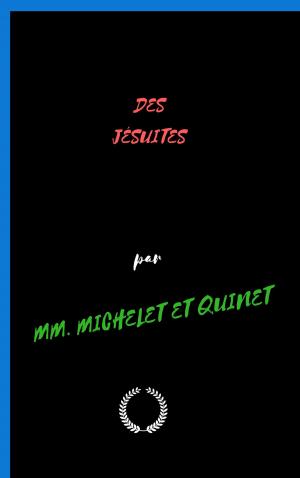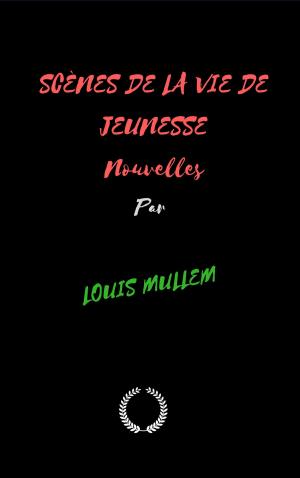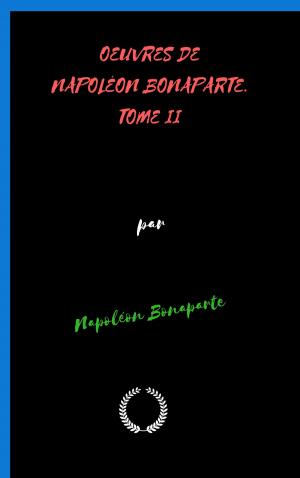LEFT TO THEMSELVES BEING THE ORDEAL OF PHILIP AND GERALD
Romance, Historical, Romantic Suspense, Contemporary| Author: | EDWARD IRENÆUS STEVENSON | ISBN: | 1230002335025 |
| Publisher: | Jwarlal | Publication: | May 23, 2018 |
| Imprint: | Language: | English |
| Author: | EDWARD IRENÆUS STEVENSON |
| ISBN: | 1230002335025 |
| Publisher: | Jwarlal |
| Publication: | May 23, 2018 |
| Imprint: | |
| Language: | English |
This book is among the best-selling popular classics "bestseller". Here is an extract of this book :
Mr. Patrick Sip had seated himself by the side of the brook that purled through the deep green ravine lying about three miles back of the Ossokosee House. Mr. Sip was not a guest at that new and flourishing summer resort. Mr. Sip, indeed, had hardly found himself a welcome guest anywhere within five or six years. He possessed a big, burly figure, a very unshaven and sunburnt face, and a suit of clothes once black, when upon the back of an earlier wearer, but long since faded to a dirty brown. Mr. Sip never used an umbrella nowadays, although he exercised much in the open air. Upon his unkempt hair slanted a tattered straw hat. Beside him lay a thickish walking-stick without any varnish. There was one thing which Mr. Sip had not about him, as any body would have inferred at a glance, although it is often difficult to detect by sight—a good character. In short, Mr. Sip looked the complete example of just what he was—a sturdy, veteran tramp of some thirty summers and winters, who had not found through honest labor a roof over his head or a morsel between his bristly lips since his last release from some one of the dozen work-houses that his presence had graced.
“Humph!” said Mr. Sip, half aloud, as he changed his position so as to let his bare feet sink deeper in the rippling creek (Mr. Sip was laving them), “I see plenty o’ water around here, but there aint nothin’ in sight looks like bread. Plague them turnips! Raw turnips aint no sort o’ a breakfast for a gentleman’s stomach. Is they, now?”
He splashed his feet about in the pure cold water, by no means to cleanse them from the dust of the highway, but simply because it was easier to drop them into the stream than to hold them out as he sat on the abrupt bank. He whistled a part of a tune and seemed to forget having put his question to the wrens and wagtails in the sassafras.
“If, now, I could jist stick out my hand and pull a ham sangwich off o’ that there useless little tree,” pursued Mr. Sip, complainingly; “or if you could sort o’ lay here an’ meditate an’ presen’ly find a good-sized pan o’ cold victuals a-comin’ a-floatin’ up.”
Neither of these attractive phenomena seeming likely to occur immediately, Mr. Sip sighed as if injured, shook his head, and said with decided temper, “Ugh, natur’! They talk so much about natur’ in them books an’—an’ churches, an’ p’lice courts, an’ sich. What’s there nice about natur’, I’d like to know, when a man can keep company with natur’ as stiddy as I do an’ never git so much as his reg’lar meals out o’ her one day in the week? Natur’, as fur as I’ve found out, don’t mean nothing ’cept wild blackberries in season. I don’t want no more to do with natur’!” Mr. Sip concluded with an angry slap at a huge horsefly that had lighted upon his ankle, and uttered his favorite exclamation, “My name aint Sip!”—which, although he meant the phrase merely as an expletive when he was particularly put out over any matter, happened to be the case.
Just at that moment Mr. Sip looked across to the opposite bank of the creek and discovered that he and the horsefly were not alone. A boy was standing rather further up the stream with a fishing-rod in his hand observing the odd figure this wandering philosopher upon nature cut. The boy appeared to be in the neighborhood of twelve years of age. He had a trim figure and fair hair, and the sunlight on it and through a green branch of a young maple behind him made the brightest spots of color in the somber little chasm. On his young face were mingled expressions of amusement and disgust as to Mr. Sip. Across his arm was a basket. A napkin dangled out of this suggestively.
This book is among the best-selling popular classics "bestseller". Here is an extract of this book :
Mr. Patrick Sip had seated himself by the side of the brook that purled through the deep green ravine lying about three miles back of the Ossokosee House. Mr. Sip was not a guest at that new and flourishing summer resort. Mr. Sip, indeed, had hardly found himself a welcome guest anywhere within five or six years. He possessed a big, burly figure, a very unshaven and sunburnt face, and a suit of clothes once black, when upon the back of an earlier wearer, but long since faded to a dirty brown. Mr. Sip never used an umbrella nowadays, although he exercised much in the open air. Upon his unkempt hair slanted a tattered straw hat. Beside him lay a thickish walking-stick without any varnish. There was one thing which Mr. Sip had not about him, as any body would have inferred at a glance, although it is often difficult to detect by sight—a good character. In short, Mr. Sip looked the complete example of just what he was—a sturdy, veteran tramp of some thirty summers and winters, who had not found through honest labor a roof over his head or a morsel between his bristly lips since his last release from some one of the dozen work-houses that his presence had graced.
“Humph!” said Mr. Sip, half aloud, as he changed his position so as to let his bare feet sink deeper in the rippling creek (Mr. Sip was laving them), “I see plenty o’ water around here, but there aint nothin’ in sight looks like bread. Plague them turnips! Raw turnips aint no sort o’ a breakfast for a gentleman’s stomach. Is they, now?”
He splashed his feet about in the pure cold water, by no means to cleanse them from the dust of the highway, but simply because it was easier to drop them into the stream than to hold them out as he sat on the abrupt bank. He whistled a part of a tune and seemed to forget having put his question to the wrens and wagtails in the sassafras.
“If, now, I could jist stick out my hand and pull a ham sangwich off o’ that there useless little tree,” pursued Mr. Sip, complainingly; “or if you could sort o’ lay here an’ meditate an’ presen’ly find a good-sized pan o’ cold victuals a-comin’ a-floatin’ up.”
Neither of these attractive phenomena seeming likely to occur immediately, Mr. Sip sighed as if injured, shook his head, and said with decided temper, “Ugh, natur’! They talk so much about natur’ in them books an’—an’ churches, an’ p’lice courts, an’ sich. What’s there nice about natur’, I’d like to know, when a man can keep company with natur’ as stiddy as I do an’ never git so much as his reg’lar meals out o’ her one day in the week? Natur’, as fur as I’ve found out, don’t mean nothing ’cept wild blackberries in season. I don’t want no more to do with natur’!” Mr. Sip concluded with an angry slap at a huge horsefly that had lighted upon his ankle, and uttered his favorite exclamation, “My name aint Sip!”—which, although he meant the phrase merely as an expletive when he was particularly put out over any matter, happened to be the case.
Just at that moment Mr. Sip looked across to the opposite bank of the creek and discovered that he and the horsefly were not alone. A boy was standing rather further up the stream with a fishing-rod in his hand observing the odd figure this wandering philosopher upon nature cut. The boy appeared to be in the neighborhood of twelve years of age. He had a trim figure and fair hair, and the sunlight on it and through a green branch of a young maple behind him made the brightest spots of color in the somber little chasm. On his young face were mingled expressions of amusement and disgust as to Mr. Sip. Across his arm was a basket. A napkin dangled out of this suggestively.















